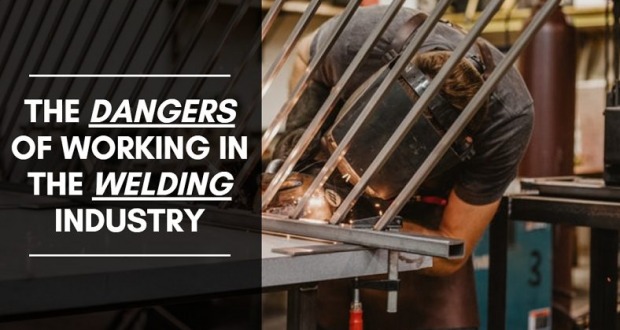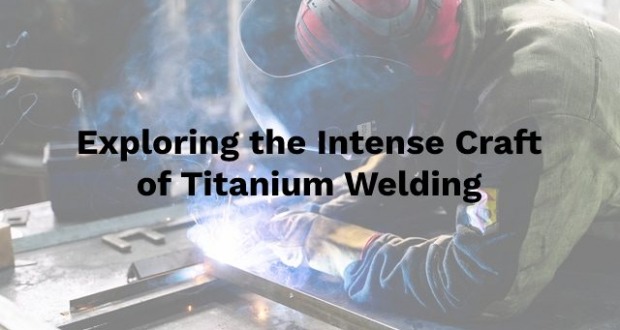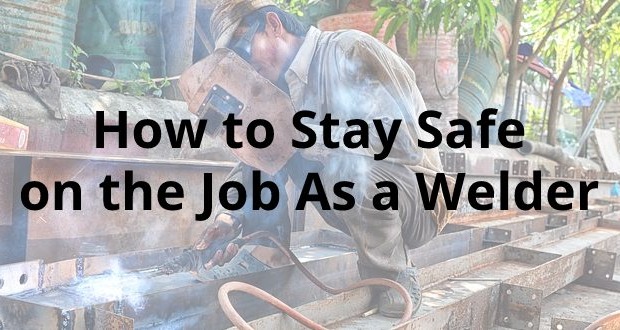Don’t let intimidation prevent you from taking a look inside the elite craft of titanium welding.
When you think of welding, you may picture people strapped to a harness on a soon-to-be-open skyscraper.
While you may have the right idea, titanium welding isn’t often used in that setting.
In fact, metal such as titanium is usually for special use, and it takes a specially trained type of welder to tame it.
What Is Titanium Welding?
As stated by TMS Titanium, titanium is a low density, high strength metal; it’s lightweight, strong, and corrosion-resistant, which is why its uses usually extend to practical things like aerospace applications.
Since the uses of titanium typically involve protecting people, the weld they create has to be reliable, meaning that a highly trained welder has to do the work.
There are several grades and alloys of titanium.
The lowest grade is the softest and contains the most ductility.
Even being the lowest grade, it still has many vital functions.
For example, grade 1 titanium is used in chemical processing facilities and marine applications.
There are also everyday uses for this type of titanium like automotive parts and airplane framing.
The highest quality pure titanium is grade 4.
Its strength makes it the least resistant to molding.
However, its uses are essential to the industrial industry.
It’s also handy in the medical industry for surgical hardware.
What is impressive about this grade is that the parts made from it remain strong up to 400 degrees Fahrenheit.
There are many alloys of titanium.
Here are a few that stand out:
- Grade 7 – Often in chemical production equipment and is highly corrosive resistant
- Grade 5 – Common in aerospace applications, and can resist up to 600 degrees Fahrenheit
- Grade 23 – Heavily used in smaller capacities like coils and strands
- Grade 12 – Known for having very high weldability
Why It’s Different From Other Metals
The thing that makes welding titanium so different from other metals is oxygen embrittlement.
It’s essential when welding iron that the metal is shielded from oxygen.
If it is not, the metal could crack.
Because of the many essential uses of titanium, brittle and cracked products won’t do.
There are tools that the welder should master before taking on projects dealing with titanium, including purge dams and trailing shields.
In addition, there is a process to welding titanium that must be done right.
For example, gasses like argon and helium must be used to shield the weld from oxygen, to protect the metal and liquid weld pool from embrittlement.
In addition, there is a great degree of multitasking done while welding titanium.
A welder must be able to work while controlling the quality of argon.
All the while maintaining enough focus to not disturb the gas and let in oxygen.
These are things that require special training and practice that one cannot simply learn as one goes.
That’s why as a contractor, it’s always good to ask about the qualifications of welders, to prevent any time delays or less than high-quality work.
Another big difference between welding titanium and other metals is the color scale.
Inexperienced titanium welders are used to metals like steel having different colors as a result of welding. However, titanium should be shiny and silver.
Blue and purple coloration on steel is not an issue as a steel welder, but with titanium, it’s a problematic sign.
The discoloration is often an indication of embrittlement, meaning the resulting weld isn’t up to par.
The quality of the sheiling to prevent embrittlement is seen in the color of the titanium weld. The color scale used to determine shielding effectiveness goes from light straw to chalky white.
On one end of the scale, there may not have been perfect shielding but it’s no cause for alarm.
The other end means that the resulting product was completely botched.
Titanium Welder Qualifications
To become a titanium welder takes quite a bit of training.
A welder must often first have at least three years of traditional welding experience and earn the proper certification from the American Welders Society.
Certification usually requires attending a vocational or technical school.
People looking for a welder will often ask questions related to the trade.
That covers everything from experience with titanium and the cleaning procedures of metals and joints.
Welding is a serious business, and titanium welding is a task reserved for the most competent, proven welders.
That’s because titanium welding ranks among the most necessary jobs.
With so much of our society depending on titanium for travel parts, medical products, and everyday use items, the need for great welders is higher than ever.
It’s a practice with responsibilities that extend far beyond the ones of a traditional welder.
With cleanliness, attention to detail, and focus being a major part of titanium welding, it takes a dedicated individual to get the job done.





















